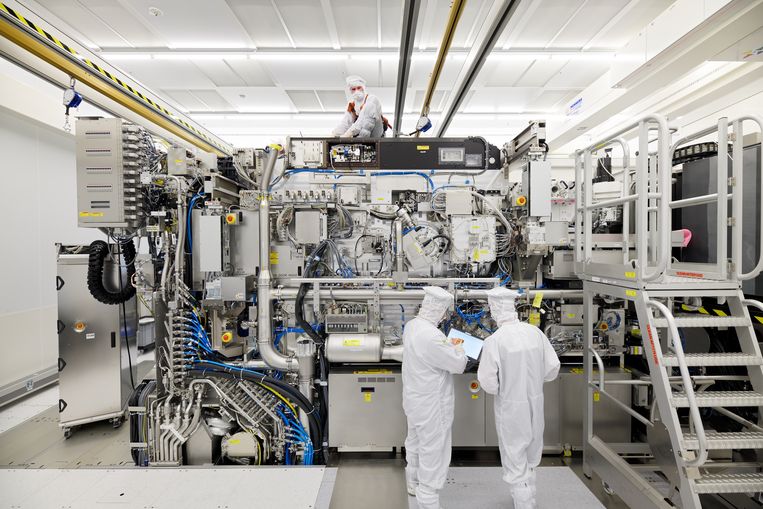The purpose of the US intervention has been clear for some time: to prevent Chinese chipmakers from producing high-quality chips. The solution is to ensure that ASML from Welthoven no longer sells machines that you can make such chips in China.
ASML’s best machine never went to China. The Americans achieved this in 2019 by invoking the Wassenaar Agreement, an international treaty signed by the Dutch. This spring, the necessary lobbying led to new Dutch rules and export restrictions. More on that later.
The Dutch government is no longer involved
New rules from last week: The Dutch government did not participate in that last US operation. America changes its own rules and enforces them beyond its borders. The US government did this by fixing the so-called de minimis standard. The rule says that if a machine contains 25 percent or more American technology, Washington has something to say about it.
The US government has now set that percentage to zero for a specific chip machine from ASML. In practice, ASML always requires a US export license when this machine is used to manufacture advanced chips. Even if it has only a fraction of American technology.
If ASML wants to export that machine to a Chinese customer, for example, it must apply for a permit in Washington. Currently this status applies to a few factories in China. Again they see a type of ASML machine pass them by.
American intervention
This has long been true for the most advanced machine ASML can build: the EUV machine. It was never in China because the Dutch government did not grant permission to export to that country.
The permit was required because the Netherlands had signed the Wassenaar Agreement. This international agreement restricts the export of technology that can be used for military purposes. An EUV machine that works with extreme ultraviolet light is included in that deal. After US intervention, the Netherlands did not grant a license to sell in China.
ASML manufactures four types of DUV machines. These older machines, which work with deep UV light, are not included in the Wassenaar package. However, ASML is no longer allowed to export the top three categories of these devices.
A Chinese invention
Since September, ASML – again after US intervention – has required a Dutch export license for all three of these DUV machines. The Cabinet arranged this ban in what is known as a Ministerial Regulation.
There is one type of DUV engine that is allowed to be exported without ASML approval. But that changed last week with a new, all-American administration. ASML now also requires an export license for the older, less advanced type of DUV machine. But now even an American, not a Dutchman.
The US is now introducing new rules related to China’s findings. There they come up with new ways to make advanced chips with (relatively) old technology. For example: Last month, Chinese company Huawei launched the Mate 60 Pro smartphone with a 5G chip. The assumption in the West was that Chinese companies could never build such a chip. The US is now investigating how chip maker SMIC can achieve this feat.
Rogue States
Which ASML machines go to China and which don’t isn’t the only way Washington is interfering with Veldovan’s company. Americans even have a say in personnel policy.
Sometimes people from Cuba, Syria, North Korea or Iran who have a temporary residence permit in the Netherlands do not get a job at ASML despite their excellent qualifications. The reason: America doesn’t want people from so-called ‘rogue states’ to come into contact with dangerous American technology. Here too, the United States enforces its own rules across national borders.
Penalty, export ban and prosecution
All those rules are strict for ASML. However, it is ultimately important that the Veldhoven Institute adheres to it as much as possible. If ASML does not do this, it risks heavy fines, export bans and criminal prosecution.
Meanwhile, all these disruptions will make little difference to ASML’s financial prospects for now. Global demand for chips and chip machines is not affected. So unless those chips are made in China, they will eventually be made in another country.

“Passionate analyst. Thinker. Devoted twitter evangelist. Wannabe music specialist.”






More Stories
Brand USA at IPW: America is the market leader in long-haul travel
Palestine UN
American expert Rymer Barth speaks at Bogandale